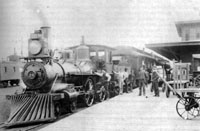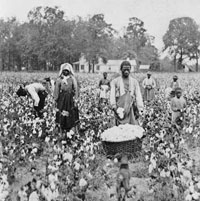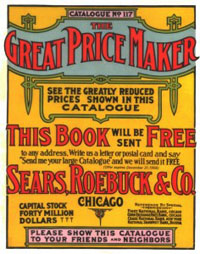Local |
| 1880 - With the coming of the railroad, the
town of Manchaca Springs relocates and
becomes Manchaca, which is only 2.5 miles
east of Ransom Williams' farm. Ransom can
now make a quick trip to town by horse or
wagon to get supplies and can ship his farm
products to market by train.
|
 |
1880s - As successful farmers and landowners,
Ransom and Sarah Williams are able to build a
good life for themselves and acquire some
luxuries for their family. When they spend
extra money on a matching set of china with
an elegant floral design, imported from
England and bought through a mail-order
catalogue, it is an expression of their financial
success. They are freed from slavery and their
lives are improving. Yet outside their home,
they still have to deal with much racial
injustice in their area, the state, and the
nation. |
|
State |
1880 - The International & Great Northern
Railroad is completed from Austin to San
Marcos, and the small communities along the
route began to grow.
1880s - Texas cotton production increases
from 805, 284 bales in 1880 to 2,506,212 in
1900. Many ex-slaves work as sharecroppers
on Texas cotton farms. |
 |
| 1880s - Texas and other Southern states
pass Jim Crow laws, separating African
Americans from white people. If Ransom
Williams and his family want to ride a train,
they are placed in a car for "colored" only.
Segregation is the law in Texas and other
Southern states from the 1880s until it is
ended by the U.S. Supreme Court in the
1950s. |
|
National |
|
1880s - Large companies such as Montgomery
Ward and Sears Roebuck are selling a wide
variety of products to customers across the
country through their mail-order catalogs.
Because of mass production in factories and a
growing transportation network, prices for many
farm and household goods are lower and more
people, including farmers and workers in rural
areas, can afford to buy them. |
 |
| 1883 - The U.S. Supreme Court declares the
Civil Rights Act of 1875 unconstitutional. This
act had given all Americans, regardless of race,
access to public accommodations and facilities
such as restaurants, theaters, trains, and other
public transportation, and had protected their
right to serve on juries. |
|
